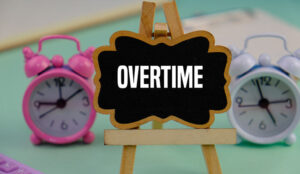The sounds we hear at work aren’t always just the voices of colleagues or the hum of equipment. In some industries, noise exposure is constant, and sometimes, it follows you home.
Persistent ear ringing or buzzing can become more than a distraction; it can impact your ability to focus, communicate, and perform.
In this article, we explore how tinnitus affects professionals and what you can do about it.
What Is Tinnitus?
Tinnitus is the perception of sound without an external source, often experienced as ringing, buzzing, clicking, hissing, or roaring in the ears.
It can be occasional or constant, mild or severe, and it is frequently a symptom of an underlying issue such as hearing loss, injury, or circulatory problems.
However, in many cases, tinnitus is triggered by noise damage to the delicate hair cells in the inner ear. Once damaged, these cells can send irregular signals to the brain, creating the illusion of sound.
While tinnitus isn’t always a sign of a serious condition, it can interfere with concentration, sleep, and even mental health, particularly when it becomes chronic or intrusive.
Why Professionals Are at Increased Risk
Although anyone can develop tinnitus, professionals in certain roles are especially vulnerable due to consistent exposure to high or fluctuating sound levels.
This includes factory workers, musicians, and airport staff, but also employees in roles you might not immediately consider high risk.
Call centre agents, real estate brokers, emergency dispatchers, financial advisors, and sales teams often spend several hours a day on the phone, sometimes using substandard headsets that offer no acoustic protection.
Poor-quality audio devices, loud environments, and a lack of adherence to noise safety standards all contribute to the risk.
Even digital professionals in open-plan offices may face constant background chatter, keyboard noise, and phone notifications that add up over time. The result: increased stress on the auditory system and a greater likelihood of developing tinnitus-related symptoms.
How to Prevent Tinnitus
While not all causes of tinnitus are preventable, many of the most common triggers, especially noise-related ones, can be mitigated with modern tools and smart habits.
- Use Quality Audio Equipment – If your job involves regular phone use, opt for certified headsets with volume limiters and acoustic shock protection. These help prevent sudden spikes in volume and reduce long-term strain on your hearing.
- Control Your Sound Environment – Limit unnecessary noise exposure throughout your day. Use noise-dampening materials in your workspace, reduce ambient noise where possible, and avoid blasting music through headphones during breaks or commutes.
- Protect Your Ears in Loud Settings – If you work in environments with machinery, tools, or loud crowd noise, always wear hearing protection such as earmuffs or custom earplugs. Even short bursts of high-decibel sound can do lasting damage.
- Take Care of Your Overall Health – Circulatory issues, high blood pressure, and chronic stress can worsen tinnitus. Regular exercise, staying hydrated, managing stress, and getting enough rest all contribute to better auditory health.
Ways to Manage and Treat Tinnitus
If you’re already experiencing symptoms of tinnitus, taking action early can prevent it from worsening. The first and most important step is to seek professional medical advice. Tinnitus is often a symptom rather than a condition in itself, so identifying the underlying cause is key to finding relief.
Here are five effective ways to manage and treat tinnitus:
Explore Sound Therapy
Sound therapy is one of the most widely used and effective tools for managing tinnitus. The goal is to reduce the contrast between the internal tinnitus noise and external ambient sound.
This is achieved by introducing gentle, consistent background sounds to help desensitize the brain and make the tinnitus less noticeable.
There are various ways to implement sound therapy, including:
- White noise machines or fans placed in your room at night.
- Apps and streaming services that offer customizable soundscapes.
- Specialized hearing aids with built-in sound generators.
Over time, this kind of auditory stimulation can help retrain your brain to treat tinnitus as background noise, which makes it less intrusive in daily life. Some people notice significant relief with consistent use over several weeks or months.
Get a Hearing Assessment
A proper diagnosis starts with a comprehensive hearing evaluation. An audiologist or ENT (ear, nose, and throat) specialist will assess your auditory system using a series of tests to measure hearing sensitivity and function.
Bloodwork might also be used to check for conditions such as high cholesterol, thyroid imbalance, or vitamin deficiencies, all of which can influence ear health.
If hearing loss is detected, your specialist may recommend hearing aids, which can not only improve your hearing but also help mask tinnitus sounds. Even in cases where no clear cause is found, the evaluation itself provides peace of mind and a baseline for future monitoring.
If you’re hearing a persistent ringing in your ears, it could be tinnitus, and it might be quietly impacting your focus and performance at work. The only way to know for sure is to consult a medical professional.
For more information on tinnitus, please visit: https://www.nhs.uk/conditions/tinnitus/
This article is a revised version of Is Tinnitus Interfering With the Work of Your Staff?, originally published by Jabra.
If you want more ways you can take care of your agents, read these articles next:
- Are You Taking Enough Care of Your Agents’ Hearing?
- Tips for Dealing With Acoustic Shock
- How to Develop Psychological Safety in the Contact Centre
Author: Hannah Swankie
Reviewed by: Megan Jones
Published On: 10th Sep 2025 - Last modified: 17th Nov 2025
Read more about - Expert Insights, Headsets, Health Wellbeing and Stress, Jabra















